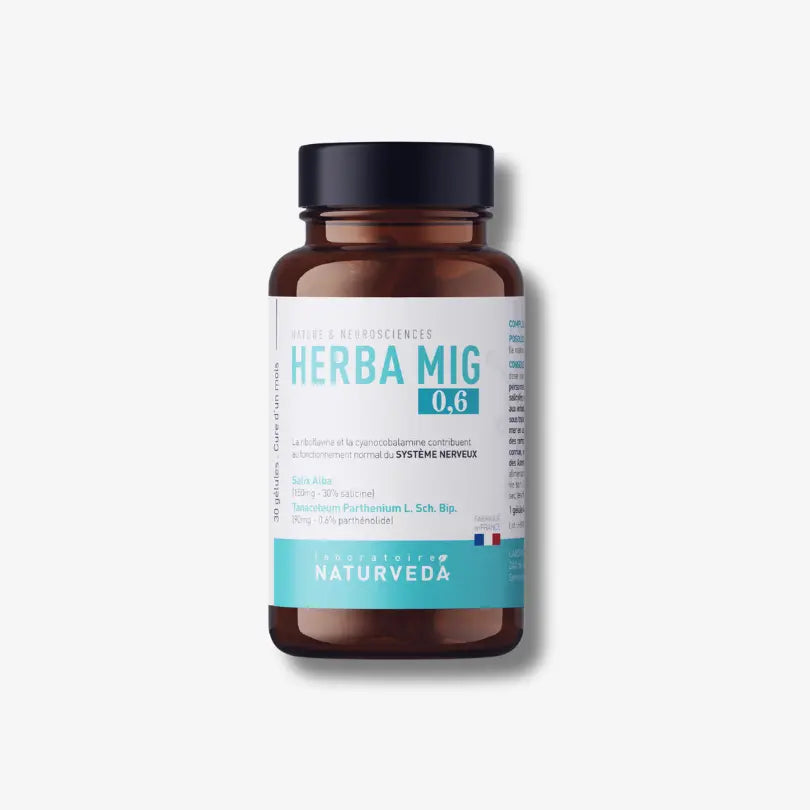For many of us, aging and illness seem to go hand in hand, as if one cannot exist without the other. But is this reality or a preconceived idea? Our crucial question in this article is: Can we grow old without getting sick?
First of all, it is important to understand that aging is a natural and inevitable process. This involves a number of physical and biological changes that can affect our health. On the other hand, just because we get older doesn't mean we necessarily have to get sick.
“Aging does not necessarily mean aging poorly. It is possible to optimize our health at each stage of our lives.”
In the following paragraphs, we'll examine some common - and sometimes misconceptions - about aging and disease, and explore scientifically proven ways to maintain good health as you age.
-
The idea that getting older automatically means you'll be sick
-
The positive effects of a healthy and balanced lifestyle on aging
-
Medical interventions that can contribute to healthy aging
We'll go into detail about each aspect, sharing valuable information and providing practical tips to help you age healthily. So, stick with us and read on to find out if we can actually grow old without getting sick.
The Keys to Aging Without Getting Sick
First, we must understand that aging is not necessarily synonymous with illness. Much research in geroscience is now refocusing its efforts not on the pursuit of immortality, but rather on reducing the period of illness associated with old age , so that we can feel healthy for longer. So, aging without dementia is a very achievable goal.
Epidemiology provides encouraging evidence that dementia can be prevented, even in very old age. Researchers are studying ways to address the root causes of aging to stave off disability and disease as we age. It is not yet clear whether these interventions will succeed in compressing the period of age-related illness or simply delaying it, and whether they will have an impact on average life expectancy. But the important thing is to aim for healthy aging, minimizing years of illness and maximizing years of good health .
There are compounds that fight aging and can contribute to this pattern. Additionally, compensatory mechanisms such as cognitive reserve or resilience can help us escape dementia syndrome at extremely old ages. It is important to note that Alzheimer's disease and related dementias are not an inevitable part of aging.
Finally, let's not forget the importance of regular medical consultations to monitor cognitive decline. There are intervention strategies that promote overall health, maintain vascular health , and increase cognitive reserve, which may help preserve cognitive function into old age. It is by adopting these strategies and remaining informed of advances in research that we can hope to age without falling ill.
Disease Prevention During Aging: What To Do?
You're probably wondering, " How can we prevent disease as we age? " The good news is that there are several intervention strategies that promote general health, preserve vascular health, and increase cognitive reserve, thereby helping to preserve cognitive function into old age.
Researchers have focused on discovering the main causes of aging to ward off age-related diseases and disabilities. However, several barriers hinder their progress, including the challenge of proving that a compound actually prevents age-related diseases in humans. This means that the complete eradication of age-related diseases remains uncertain. Geroscientists do not pursue immortality, but rather aspire to reduce years of illness in old age in a shorter period of time in order to help people feel healthy longer.
Even more research is needed to determine the effectiveness of these prevention strategies in reducing dementia risk . However, epidemiological studies show that dementia can be prevented in truly old age, meaning that aging without dementia is entirely achievable.
The potential of these approaches provides hope for a better quality of life as we age. The idea is not to extend life indefinitely, but to optimize those years to be as active and healthy as possible. In this quest for healthy aging, the active and informed participation of everyone is crucial. After all, taking care of your health is an act of autonomy and self-respect. So why not start today?

The Importance of a Balanced Diet for Healthy Aging
Adopting a balanced diet is an effective way to promote healthy aging. Eating mostly natural foods and lots of vegetables can have a significant impact on your brain health.
It has been found that the combination of good nutrition, regular physical activity, and social and mental engagement can significantly improve brain health. This is particularly important when considering the aging population. By 2030, for example, there will be 73 million baby boomers aged 65 or older in the United States. It is therefore essential to find ways to improve health in old age.
The aging process, although inevitable, can be influenced by our dietary choices. For example, the study of geroscience examines how certain anti-aging compounds found in natural foods can help us maintain good health and avoid disease as we age.
Finally, aging without dementia is a possible reality. Intervention strategies that promote overall health, maintaining vascular health, and increasing cognitive reserve may help preserve cognitive function into old age. A regular medical check-up is also important to monitor for any cognitive decline.
In conclusion, opting for a healthy and balanced diet is a crucial step to aging in good health and best preserving our cognitive health capital.
The Benefits of Physical Activity on Aging
It is undeniable that physical activity plays a crucial role in the aging process. Not only does it help you maintain a healthy weight, but it can also help prevent or manage various health conditions, including heart disease, type 2 diabetes, and certain types of cancer.
However, the benefits of physical activity on aging extend beyond physical health. In fact, studies have shown that regular physical activity can promote mental and cognitive health. It can help prevent depression, anxiety and other mental disorders , while boosting memory and concentration. Additionally, it can help maintain independence and quality of life as we age.
It is important to note that the term "physical activity" does not necessarily mean doing sports intensively. These can be simple daily activities like walking, gardening or playing, which can be both stimulating and enjoyable. In fact, engaging in activities that you enjoy is essential to maintaining a lifelong physical activity routine.
In summary, regular physical activity is a key factor in promoting healthy aging. It's never too late to start, and even small changes can make a big difference. So why not consider making physical activity a part of your daily routine?
Stress Management: An Asset for Disease-Free Aging
Know that stress can have a devastating impact on your mental and physical health. When we talk about “aging without getting sick” , stress management plays a significant role. Indeed, several studies highlight the link between chronic stress and a multitude of health problems, particularly those linked to aging.
But how to manage stress to age healthily? One strategy lies in building strong social support networks. These networks can constitute a real barrier against stress by acting on several levels. They offer a socially supported form of protection, provide emotional support, and provide opportunities to challenge the brain in stimulating ways.
Beyond these support networks, practicing relaxation and meditation can diligently help reduce tension. In addition, establishing a work-leisure balance, taking the time to relax, but also getting enough sleep, are essential for effective stress management.
In short, you are no longer unaware that the application of stress management methods can be a major ally in your quest for healthy aging. Do good to your body and mind today, and they will reward you tomorrow.
The Impact of Sleep on Health and Aging
You've probably heard that sleep plays a key role in our overall health and particularly in the aging process. Stay tuned to understand how a good night's sleep can prove to be a miraculous remedy for maintaining youth and vitality.
Sleep is a state of rest in which our entire body works to repair and regenerate itself. When you sleep, your brain eliminates toxic waste that has built up during the day, your body produces growth hormones to help repair damaged tissues , and your immune system recharges its batteries. This is a crucial time for cellular repair and memory consolidation, two essential aspects for healthy aging.
According to various epidemiological studies, lack of sleep can lead to a host of age-related health problems, including dementia. As you age, you may notice changes in your sleep patterns. But that doesn't mean you need less sleep. In reality, adults need at least 7 to 9 hours of sleep per night to maintain optimal health.
Additionally, geroscience studies have shown that sleep quality directly impacts aging. Poor sleep, characterized by frequent waking up or fragmented sleep, can accelerate the aging process by disrupting the proper functioning of your cells.
So how can you improve sleep quality to delay the signs of aging? Adopt a regular sleep routine, avoid caffeine and screens before bed, and eat a balanced diet. Also consider exercising regularly to promote deep, restorative sleep . Know that growing old without getting sick is entirely possible, but it requires special attention to your lifestyle habits, including your sleep.
To fight against the ills of aging, the adage remains true: “Prevention is better than cure”. Good sleep is fundamental to rekindle our inner youth and allow us to age in good health.






